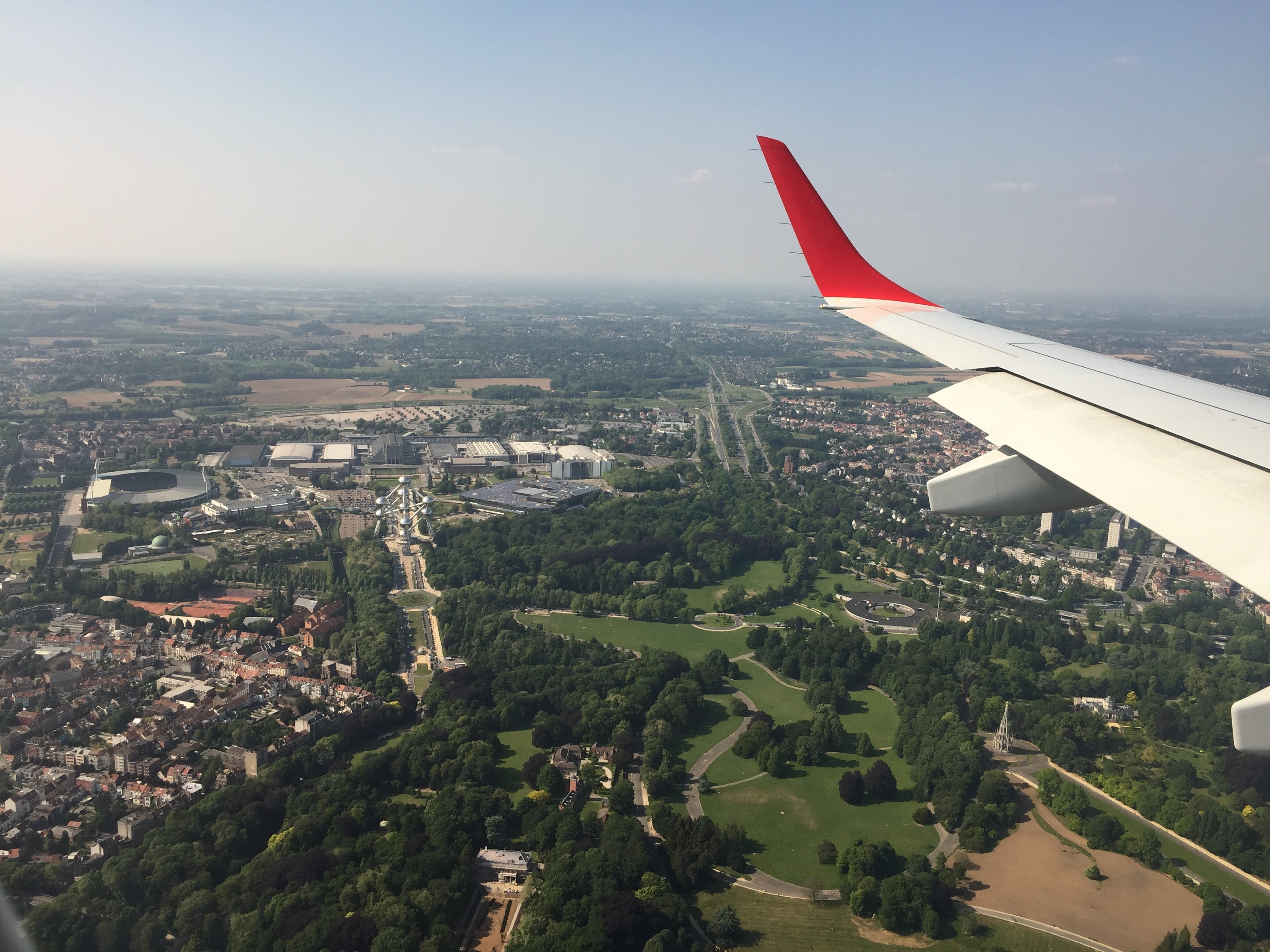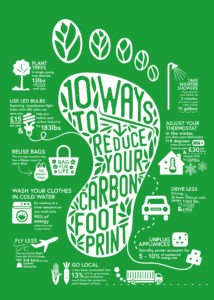The insecurities of a bad environmentalist

I consider myself an environmentalist. Why? Because I believe it is possible for both humans and the earth’s natural systems to thrive in parallel and not at the expense of each other; because I believe there are better ways to do everything we are already doing; and because I do believe that our everyday actions matter to everyone and everything.

However, I know I am actually a very bad environmentalist. Like in most fields, there are many standards for what makes a good and a bad environmentalist. Before adopting a self-title, we have to make sure that we live up to a certain standard. But what about when the standard is undefined? Considering that being an environmentalist today has so much to do with living up to the title with actions and lifestyle choices, the subjective nature of the “environmentalist” standard leaves a lot of room for scrutiny and insecurity.
The discussion of whether our lifestyle choices really have any real impact on the environment or if the true panacea must come from the top-down – is a popular debate. Yet, it is evident that if ambitious and holistic policies to significantly limit environmental degradation (at the expense of economic growth) were actually implemented, the world would be in much better shape. However, while this is not effectively taking place, I do believe individual citizens hold power in swaying demand, lifestyle and culture in the right direction through our daily choices.
With the goal of swaying the tide in the right direction, exist different degrees of environmental commitment. The basic level of commitment demands that we adopt everyday habits such as recycling, biking or taking public transportation, carrying a re-usable water bottle and grocery bags, buying second hand clothing, and so on. These I would say are the easy ones. Most people who care at least a tiny bit about the impact they are having will usually do these things. However, anything more than that becomes far more complicated.
 After the “everyday” environmentalists, come those who chose to sacrifice habits which in the 21st century, have become norms of middle-class life in the West. For example, quitting meat consumption and reducing or eliminating long-distance airplane travel. There are also the die-hard environmentalists, like Bill Mckibben, who limit the number of kids they have as a way to reduce their environmental footprint. In his book Maybe One, he makes the case for one-child families, based on the fact that bearing children is the single greatest impact we have on the planet. However, most people, even those dedicated to the cause would never even consider not bearing children for the sake of the environment – that just seems like the ultimate sacrifice.
After the “everyday” environmentalists, come those who chose to sacrifice habits which in the 21st century, have become norms of middle-class life in the West. For example, quitting meat consumption and reducing or eliminating long-distance airplane travel. There are also the die-hard environmentalists, like Bill Mckibben, who limit the number of kids they have as a way to reduce their environmental footprint. In his book Maybe One, he makes the case for one-child families, based on the fact that bearing children is the single greatest impact we have on the planet. However, most people, even those dedicated to the cause would never even consider not bearing children for the sake of the environment – that just seems like the ultimate sacrifice.
So, what is a “model environmentalist” and at what point can we stop feeling guilty about some of the wrong lifestyle choices we make?
If a “model environmentalist” were to exist, I suppose it would be somebody with a zero environmental footprint. However, this is probably impossible to achieve. Since everything we do on a daily basis has some degree of impact on the environment, it would literally mean returning to hunter-gatherer way of life, and this is definitely not what I believe we, environmentalists are striving for. So, speaking within an attainable reach, being a “model environmentalist” in today’s society would probably mean having a completely renewable-energy home, producing one’s own food and supporting local organic farmers, living zero waste, relying on a bike and public transpiration to get around, never flying, having one or no kids, and dedicating one’s professional life to advancing environmental policy. This is simply my interpretation of the expectations placed on a “truly environmentally committed individual.”
As many of us, self-proclaimed environmentalists, know we might spend our lives trying but we will never be able to reach these standards completely, does this mean we are misusing the title? I always thought that dedicating my daily energy on trying to achieve these practices was already a worthy effort to use the title. Have I been wrong all along?
Who is the judge anyway?
In my journey to be a better environmentalist, I am certainly conflicted by a number of things I want to do better. Yet probably the one that speaks to me most often is the voice in my head telling me I travel way too much – and it’s true. I grew up moving countries every couple of years due to my father’s career. My adult life has also been full of changes and I admit that this lifestyle has become my norm, my life, it has become an inherent part of me. But how can I advocate so fanatically about all other lifestyle choices when I blatantly abuse my freedom to travel? I am aware of this massive double standard I practice and I have been called a hypocrite environmentalist before – which clearly hit a soft spot.

Guilt leads us to find ways to justify our choices to ourselves, such as I telling myself that at least I abandoned meat which is a more polluting industry than transportation. I am trying my best to take trains when it is geographically and financially feasible. I also started paying the carbon footprint tax on airlines and buses. Although I am not really sure this system is effectively doing anything in the greater scheme of things, I will continue to pay it anyway. Despite all this, I am aware that all these things have a much bigger impact on my conscience than on the environment. By compensating in other actions, I manage to make myself feel better. I know this is a made up solution and it is therefore my current internal struggle.
Green is not the new Black
While environmentalism and sustainable living is becoming more widespread amongst “the educated class” – it is also widely criticized for being a PR fad, a greenwashing tactic, “problems of the rich” and of entitled millennials, or simply a hipster thing.
These classifications really perturb me. Greenwashing in business and politics is in fact a big issue, and many individuals may be dishonest about their true motives and seek only to benefit their image. However, it is a shame that these negative examples are used to taint an entire movement that is both urgent and inevitable.
For this reason, it is so important that we are clear about the motives that are driving our personal journey to live more sustainably and to fight for these causes. Environmentalism is not about comparing carbon footprint data to see who pollutes less and therefore who is “greener.” It’s about speaking out about global injustices towards the environment, social justice, human rights, animal welfare and the ways which all these movements interact. It is about understanding and shedding light on the impact of every level of the global supply chain and about tracing the complex web of relationships that our actions influence.

We must not lose sight of the underlying problems. Environmentalism is not a measurement, but rather the dedication to live with clarity regarding the role we play in this world. Environmentalism is not a grade we receive, it’s not a trend nor a sub-culture. Environmentalism is a daily project made up of conversation, action and system change – and it must become the norm.
At the end of the day, it is us who must set our own standards. My standard is constantly evolving, and the more I learn about my impact, the clearer I see the areas I want to improve. I have come to the conclusion that there is no such thing as the “model environmentalist,” at least not for most ordinary people. Unless you have the money to transform your home into a negative-energy home, or opt out of being part of modern society and go live in the bush, ordinary humans must set their standard, strive to reach it, and then go past it.
If you think about the global impact of your actions throughout your day, you are still part of the very few who do. Therefore, with the non-existent authority that I hold as a self-proclaimed environmentalist, I proclaim you: an environmentalist too.
This is a difficult fight – let’s just embrace the title and try our best to do it justice.
Cookie



Aida Hernandez Castillo
Creo que a muchos que hemos apostado por trabajar x la justicia social en América Latina nos falta tomar más en serio la agenda medioambiental y los compromisos cotidianos que esto implica. Los temas de Violencias extremas como el Feminicidio o la Desaparición Forzada nos traen desbordados, pero hay pequeños hábitos que podemos y debemos ir cambiando gracias x recordárnoslo Ana Christina! Paralelamente hay que ampliar nuestras agendas de lucha política, una líder indígena de Colombia nos decía en una reunión sobre Comusiones de la Verdad que la violencia contra el territorio es un tema que no podemos olvidar y el ambientalismo apunta q remediar esas violencias.